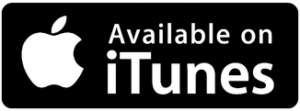Do you struggle with keeping realistic expectations? In this episode of the Maximum Lawyer Podcast, Tyson and Jim share their insights on unbridled optimism and how it relates to the field of law.
In this Pop-up episode, Tyson interviews Harlan Schillinger and Eric Coffman, Co-Founders of LeadDocket, a simple lead tracking software for law firms. Listen as they dive deep into its features and advantages going over the importance of follow up and communication.
[DISPLAY_ULTIMATE_SOCIAL_ICONS]
[smart_track_player url="http://traffic.libsyn.com/maximumlawyer/Popup_131.mp3" social_linkedin="true" ]
Register to MaxLawCon19, June 6 and 7 in St.Louis.
Topics:
-
- About LeadDocket
- Intake and Conversion for Lawyers
- Law Firms getting into advertising
- Leads and accountability
- About LeadDocket
- “What is going on in your office?”
-
- LeadDocket’s beginnings
- Dino Colombo and Eric Coffman started working on software for their own needs
- Partnering up
- LeadDocket’s beginnings
- Conversion
-
-
- “In any Law Firm, the biggest problem, the biggest challenge, is in what we call “the chase”... It’s not answering the telephone or signing the client, It’s that whole in between piece that when the client says “let me think about it”.
- A software to solve own business problem
- 30% increase in sign ups
- Majority of firms had intake problems
- LeadDocket formalizes the process to make sure that every lead is handled through a defined process
- Text Messages
- Text Messages VS Email
-
- “You have to be able to connect with people in the way that the want to be communicated with.”
-
- LeadDocket is the beginning; Up into the point they are signed up they’re in LeadDocket.
- Integrations with other Platforms
- As you become a client, there’s a different system
- Automation of Text Messages and reminders
- LeadDocket is the beginning; Up into the point they are signed up they’re in LeadDocket.
- RAW SIMPLICITY
-
- Specifically built for the legal industry
- Follow up to make sure leads don’t get lost
- Dealing with Clients
Register for the MaxLawCon19!
Thanks so much for listening to the show! If you want to know more about this and keep on maximizing your firm, please join our Facebook Group or like us on Facebook and comment!
You can also go to MaximumLawyer.com or, if you’d prefer, email us at: [email protected]
//
Do you want to get on the show? Shoot us an email or message us!
The Maximum Lawyer Podcast. Partner up, and maximize your firm.
Guild Membership
Free Access to Stage 1 of Maximum Lawyer in Minimum Time
Sign Up Today!Customer Reviews
4.9 out of 5
Join Our Facebook Group
Enjoy Exclusive Access To Stage One Of The Maximum Lawyer In Minimum Time Course
Privacy Policy
This privacy policy has been compiled to better serve those who are concerned with how their ‘Personally Identifiable Information’ (PII) is being used online. PII, as described in US privacy law and information security, is information that can be used on its own or with other information to identify, contact, or locate a single person, or to identify an individual in context.
Please read our privacy policy carefully to get a clear understanding of how we collect, use, protect or otherwise handle your Personally Identifiable Information in accordance with our website.
What personal information do we collect from the people that visit our blog, website or app?
When ordering or registering on our site, as appropriate, you may be asked to enter your name, email address or other details to help you with your experience.
When do we collect information?
We collect information from you when you register on our site, place an order, subscribe to a newsletter, Use Live Chat, Open a Support Ticket or enter information on our site.
How do we use your information?
We may use the information we collect from you when you register, make a purchase, sign up for our newsletter, respond to a survey or marketing communication, surf the website, or use certain other site features in the following ways:
- To personalize your experience and to allow us to deliver the type of content and product offerings in which you are most interested.
- To improve our website in order to better serve you.
- To allow us to better service you in responding to your customer service requests.
- To quickly process your transactions.
- To send periodic emails regarding your order or other products and services.
- To follow up with them after correspondence (live chat, email or phone inquiries)







